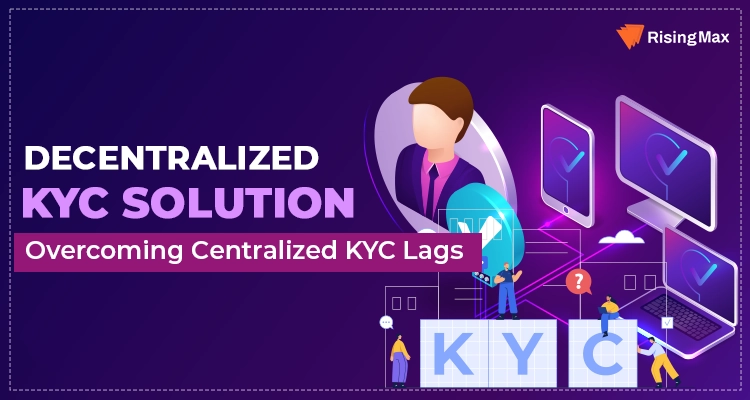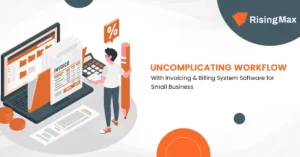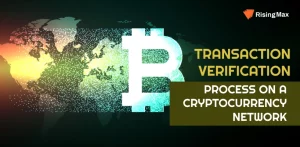The foundation of a financial institution’s anti-money laundering program is its KYC processes. “Know Your Customer” (KYC) is essential to preserving security and compliance in today’s digital world.
Banks, financial service providers, and blockchain-based companies cannot avoid Know Your Customer (KYC) procedures. Existing KYC solutions, however, have shortcomings, including a high risk of error and effort duplication. These include manual and online identity verification, video, and biometrics.
A decentralized KYC solution uses customers’ public keys rather than personal information to verify their identities. It is safer than other methods like email or SMS verification because it does not require a central authority to store information about all of its users.
Note: International money laundering is estimated to account for between $800 billion and $2 trillion annually, or more than 2% to 5% of the global GDP. (Persona)
Align the current state of IT with your business strategy by hiring the most trustworthy Blockchain Development Company
What Is Decentralized KYC?
A distributed ledger is created using blockchain technology and shared with all network users. Due to this factor, no central authority creates a vulnerability similar to the client/server model.
Because blockchain databases are immutable, their data is much more reliable. These databases could be used to store a person’s ID information and be completely reliable.
For instance, if the financial services industry uses a decentralized KYC solution, they can quickly and effectively verify users through an app, etc.
Governmental organizations and businesses could completely rely on the data due to the dependability of blockchain databases, eliminating the need for additional ID checks.
Choosing The Proper Blockchain-based KYC Solution
The quality and compliance standards for the fintech products available today are extremely high. Of course, the main goal of any software development company is to create a fantastic product.
How do you pick a reliable decentralized KYC solution? We suggest working with a reputable software development company to assist you in creating a successful dApp for KYC verification solutions using the appropriate blockchain technologies.
Seek Out Customer Service
Customer support in any blockchain KYC platform ensures that companies and their clients get prompt, efficient assistance for platform-related problems or questions. It involves more than just fundamental customer service principles like fostering a positive user experience and winning over customers.
Ensuring regulatory compliance is one of the crucial responsibilities assigned to client service with regard to blockchain-based KYC.
Verify Reporting
Blockchain KYC platforms can generate reports and analyze data related to their efforts with efficient reporting. It makes it possible to track and monitor these activities’ development, understand the degree of risk connected to their clients, and spot potential problems or areas for improvement.
You can use this knowledge later to allocate resources more wisely, reduce financial crime risk, and make better business decisions.
Information Analysis
Businesses can gain insights from the massive amounts of data generated during the KYC process using data analysis. By combining data analytics and artificial intelligence, clients can use this feature to gain deeper insights into customer behavior, spot trends, and potentially spot instances of financial crime.
Businesses can improve customer experiences, reduce financial crime risk, and make better decisions by analyzing real-time customer data.
Verify Compliance Requirements
The ability of a decentralized KYC solution to follow different regulatory specifications and standards for customer onboarding and verification is referred to as compliance.
For financial crime (such as money laundering and terrorist financing) to be reduced, KYC compliance is essential. Businesses must ensure the KYC they choose complies with all applicable regulatory standards and guidelines. The latter was established by local regulatory bodies and the Financial Action Task Force (FATF).
Examine Extension
A blockchain-based KYC solution’s extensibility refers to its capacity to quickly integrate with and adjust to new services, technologies, and regulatory changes. The decentralized KYC solution is extensive. As a result, companies using it can scale their KYC solution, adapt it to suit their unique requirements, and integrate it with other platforms or tools.
Also Read: How To Build A Web3 Dapp
How Verification For Decentralized KYC Solution Works
- Users must first undergo KYC verification once through a decentralized service provider they can trust. The service provider creates a digital signature with the user’s identity verification data once the user completes the KYC verification process.
- The user can store this digital signature on the blockchain by interacting with a specific smart contract. The addresses of users who have passed KYC verification are recorded in this smart contract.
- The KYC-verified private key can specify a whitelisted address, which is used as the actual address in application scenarios instead of the original private key, for increased security of the original private key.
- When a user logs into some wallets or Web3 applications using this address, security is increased. The original private key can be used to reassign the whitelisted address in the specific smart contract if the private key for this address is lost or stolen.
- Zero-knowledge proofs allow users to demonstrate to others or entities that they have successfully completed KYC verification without disclosing their personal data. Without disclosing the actual signature, this proof can validate their digital signature.
- Other users or entities only need to check if a user has interacted with the smart contract (i.e., if there is a record on the blockchain) and validate their zero-knowledge proof to determine whether they have successfully passed KYC verification.
Decentralized Solutions For KYC Compliance
A decentralized KYC solution can significantly streamline compliance procedures by enhancing security, transparency, and efficiency.
We’ve listed a few ways that blockchain technology can be applied to address KYC issues below:
Governmental Identities
Blockchain can help people create sovereign identities with control over their personal data. One can choose which service providers to share verified information with by storing KYC data on the blockchain in encrypted form. This increases privacy and lessens the need for repeated KYC checks.
Permanent Audit Trails
As blockchain is immutable, data stored on the blockchain can’t be changed or removed. It is perfect for keeping an audit trail of KYC activities.
A transparent and unalterable history of customer interactions can be provided by securely storing transaction records, including identity verification, on the blockchain.
Associated Blockchains
Financial institutions and regulators can develop blockchain consortiums to maintain and verify KYC data jointly. This shared infrastructure reduces duplication and enhances compliance by allowing real-time updates and synchronization of customer data across numerous institutions.
Smart Contracts
Self-executing contracts, known as “smart contracts,” are stored as blockchain data. They enforce compliance rules and automate some KYC procedures. A smart contract, for instance, automatically performs the necessary checks against predefined rules, such as transaction limits or suspicious activity patterns, when a customer initiates a transaction.
Superior Due Diligence
By offering a source of information that is transparent and auditable, blockchain can help with improved due diligence. Financial institutions use blockchain networks to trace the history of transactions, track the source of funds, and spot any suspicious activity or potential threats linked to particular addresses or entities.
Safe Data Exchange
Blockchain allows financial institutions, regulators, and other authorized parties to share KYC data securely. Sensitive customer data can be shared on authorized, encrypted blockchain networks in a controlled, auditable manner, lowering the risk of data breaches.
Consensus Mechanisms
Blockchain networks use consensus mechanisms to ensure participant agreement, making it challenging for bad actors to alter or falsify KYC data. The blockchain’s distributed and decentralized structure helps guard against single points of failure and boosts overall system security.
Benefits Of Blockchain In The KYC Process
The applications of decentralized KYC solutions are not limited to blockchain in fintech. A blockchain development company collaborates with several industries to explore the benefits of blockchain in the KYC process.
Spread-Out Data Gathering
Decentralized KYC solutions provide data on a decentralized network that parties can access after permitting. Additionally, the system provides effective data security because unauthorized access to the data is prevented. After all, users can only access it with their permission.
Improved Operational Effectiveness
The time and effort required in the initial stages of KYC can be greatly reduced by the capabilities such as an unhackable digital process and sharing user information on a permissioned network. In turn, this reduces the cost of regulatory and compliance while also speeding up customer onboarding.
Verifying The Accuracy Of The Information
Financial institutions can verify the reliability of the data present in the blockchain platform with KYC Blockchain systems’ transparency and immutability. The decentralized KYC solution is a streamlined method for obtaining safe and quick access to current user information. This reduces the time-consuming efforts an institution makes to gather information.
Constant User Data Updates
Every time a financial institution conducts a KYC transaction, the data is shared within a distributed ledger. The KYC systems using blockchain technology allow other participating institutions to access real-time updated information with the assurance that they will be notified as soon as new documents are added, or changes are made.
RisingMax’s Decentralized KYC Solution For Verification
People are sharing their personal information at an unprecedented rate in today’s connected world, and this trend is likely to pursue as 5G, the Internet of Things, open banking, and other technological advancements become more widely used. Organizations are and will continue to be expected to quickly and effectively collect, process, and verify this personal information.
RisingMax Inc.’s blockchain experts use their knowledge to create simple solutions and develop blockchain fintech solutions for challenging issues. We give our clients freedom from third-party intermediaries, increased productivity, and end-to-end business solutions.
Our professional team of blockchain developers can assist you in this situation. Fill out this form to send us the initial specifications for your blockchain solution, and one of our technical managers will contact you to review the specifics.
If you want to learn more about this aspect of blockchain development services or if you want to validate your decentralized KYC solution, get in touch with us. We are one of the top blockchain development companies in the US.












